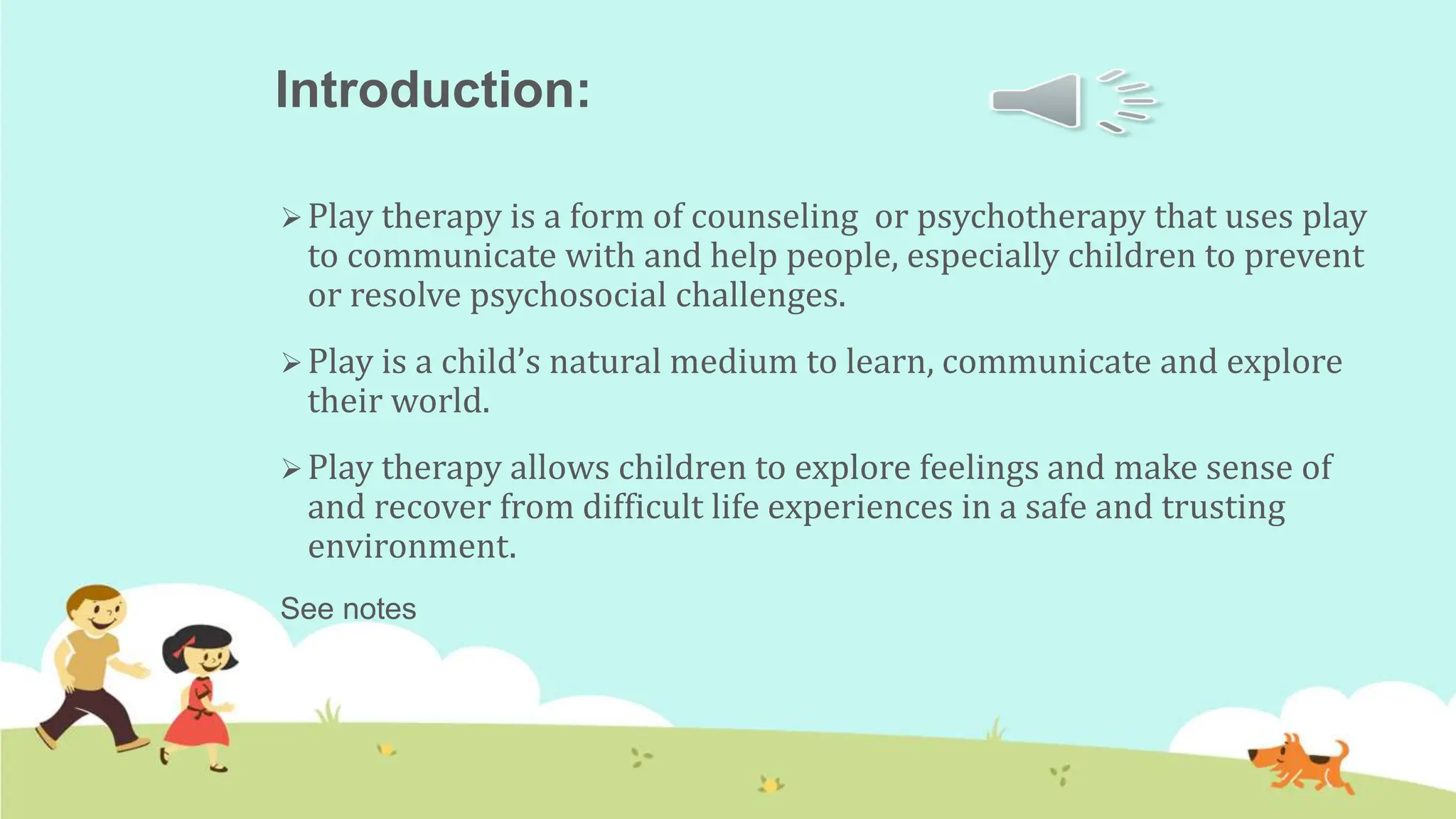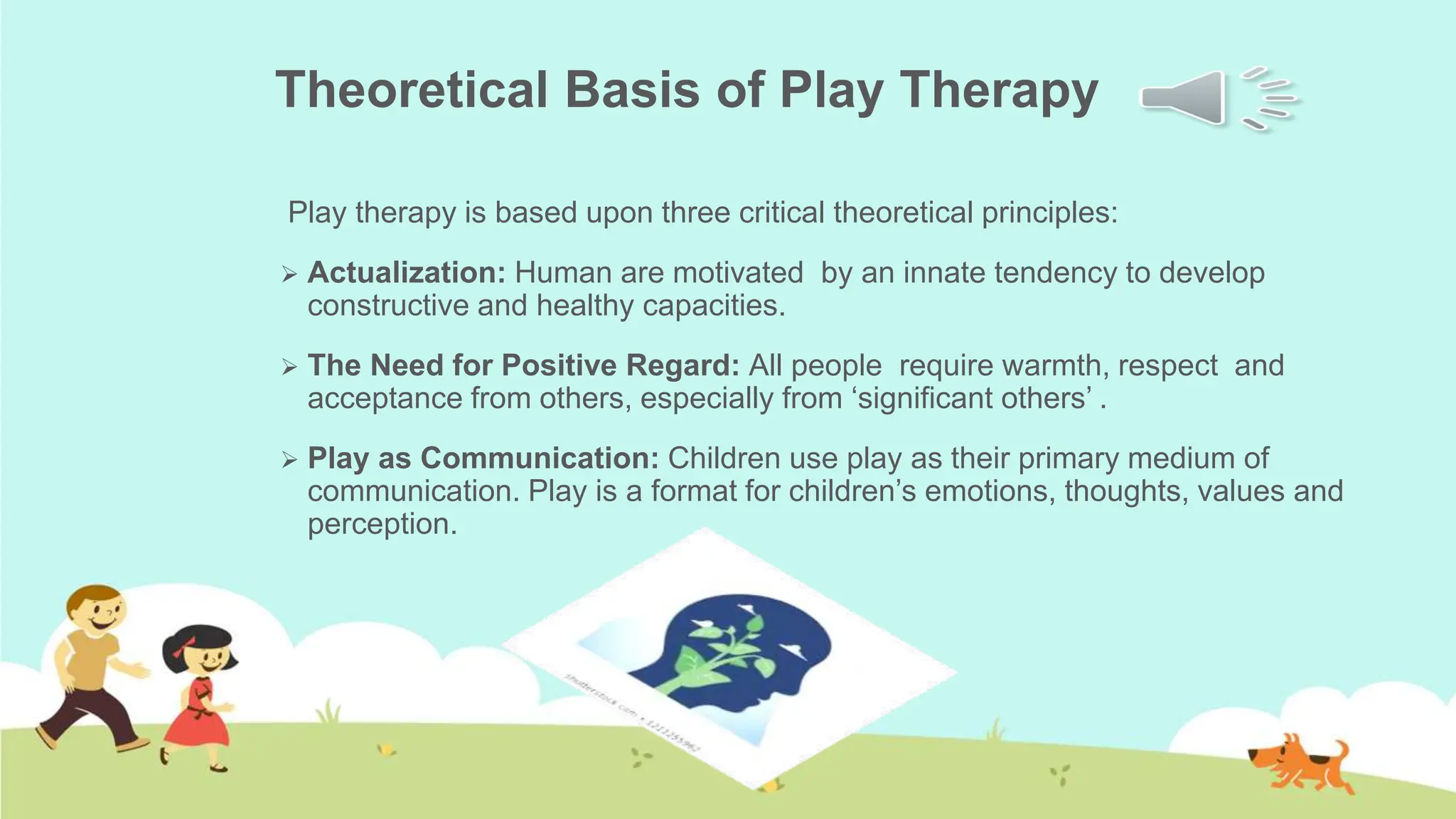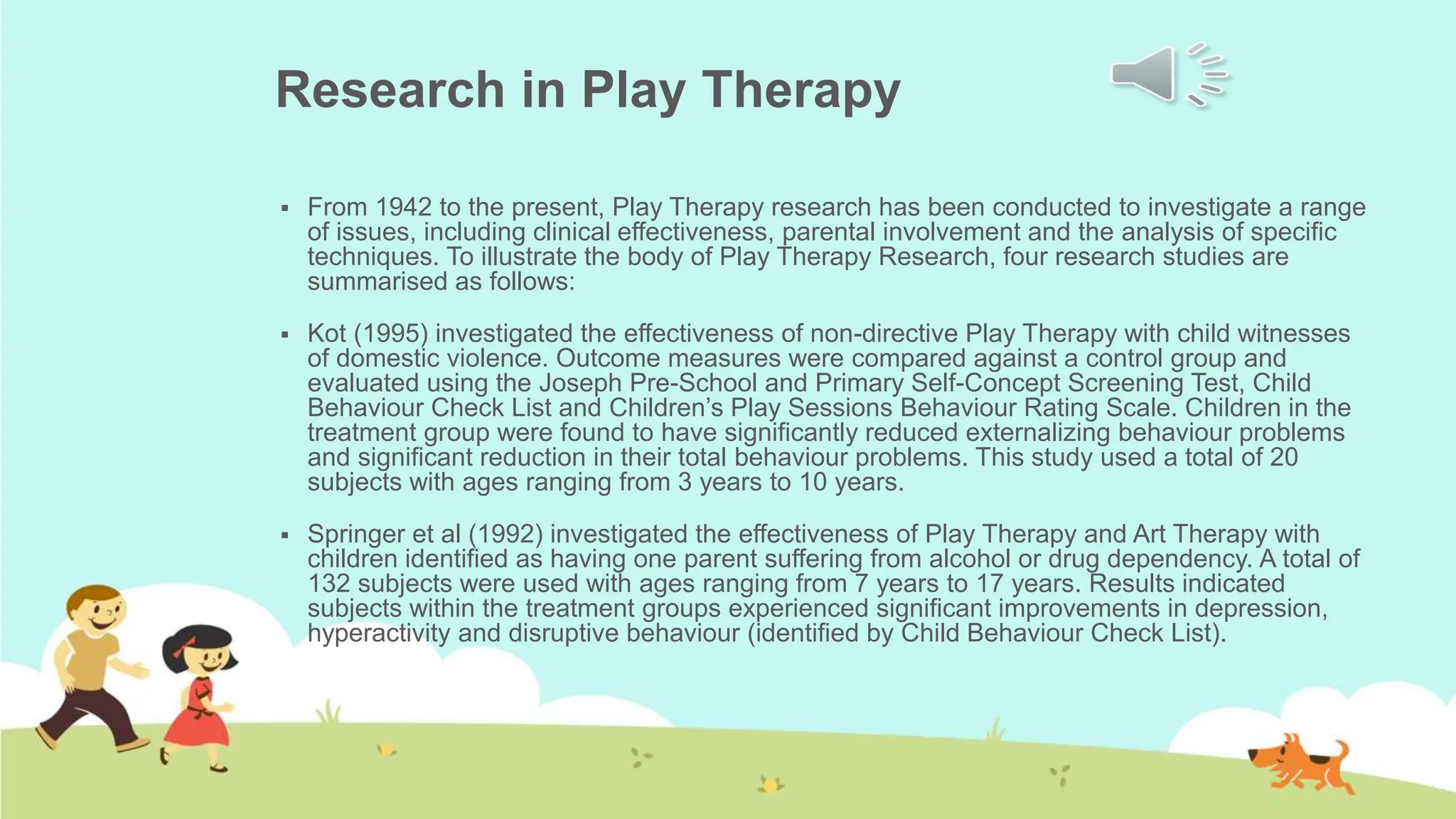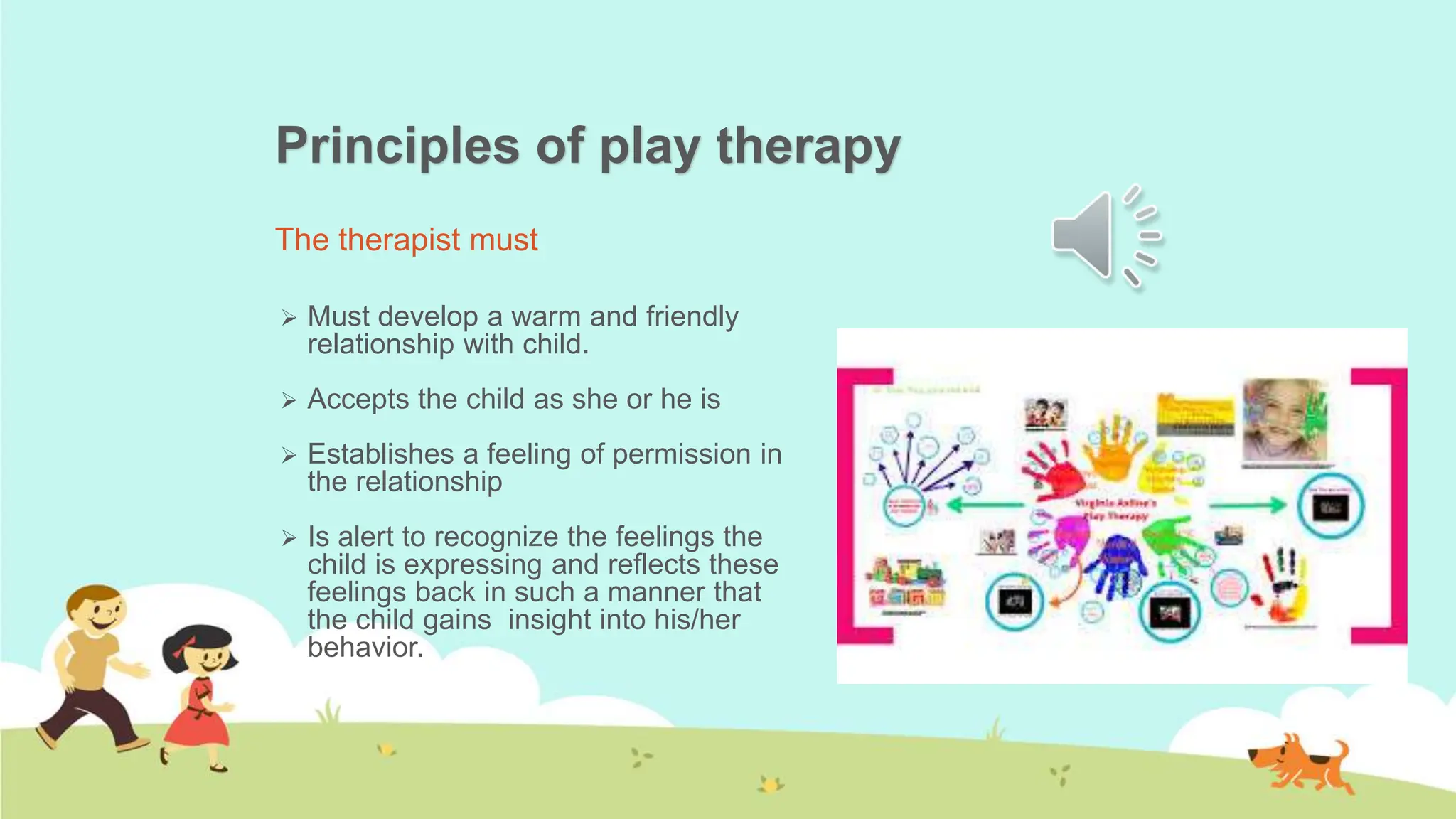Play therapy is a therapeutic approach primarily for children aged 2 to 12 that utilizes play as a medium for communication and emotional expression to address psychosocial challenges. The method has historical roots in psychoanalysis, with various studies showcasing its effectiveness in mitigating behavioral issues and emotional distress among children. Key principles include fostering a warm, non-directive relationship between therapist and child, allowing the child to explore and resolve their issues at their own pace.











